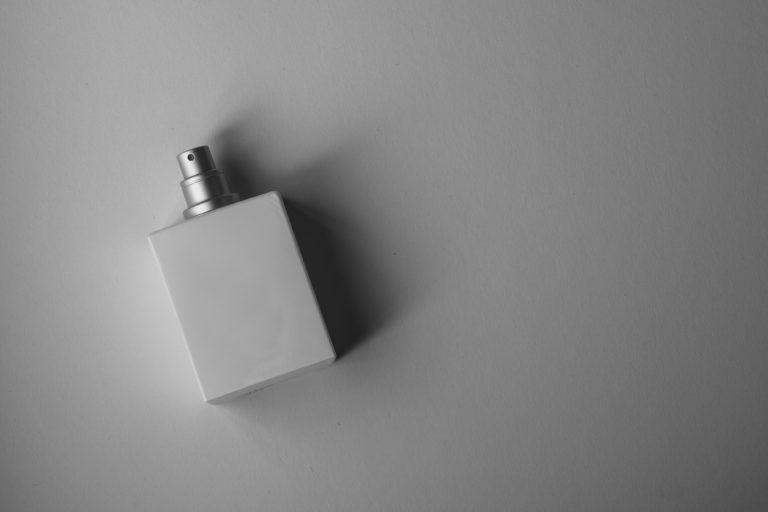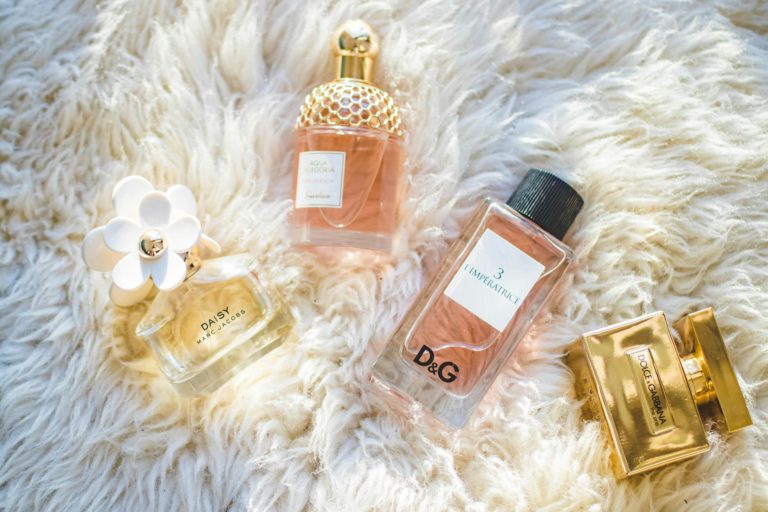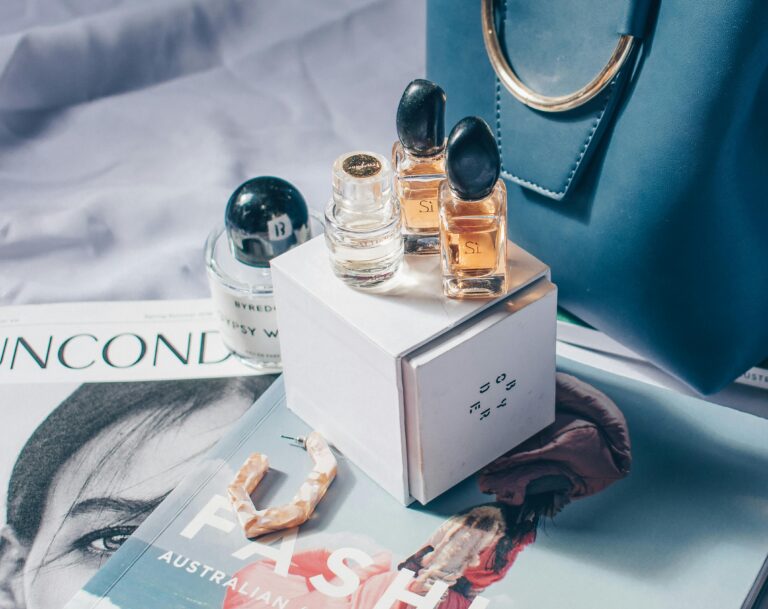Perfume is a powerful accessory, capable of enhancing your personal style and leaving a lasting impression. Have you ever wondered how to match the perfect scent with your outfit? Whether it’s a casual day out or a formal event, understanding the art of perfume pairing can elevate your style to a whole new level.
I. Selecting the Right Perfume
Choosing the perfect perfume for your outfit is an art, not a science. Here’s what you need to consider:
Personal Preferences and Body Chemistry
Your body chemistry is pivotal in how a fragrance smells on you. Before pairing perfume with outfits, understand your scent preferences and how they interact with your natural aroma. Some fragrances may become sweeter or more intense on your skin, while others might mellow out.
Your unique body chemistry can significantly affect how a perfume smells on you. What smells amazing on one person might not have the same effect on another. Therefore, knowing what types of scents you enjoy and how they interact with your body chemistry is crucial.
Types of Fragrances
- Floral Fragrances: These are light and romantic and often feature the scent of flowers like roses, lilies, or jasmine. They’re great for a fresh and feminine touch.
- Oriental Fragrances: Orientals are rich and exotic and often feature warm and spicy notes like cinnamon, vanilla, or amber. They exude a sense of sensuality and luxury.
- Citrus Fragrances: Citrus scents are zesty, fresh, and vibrant. They’re often composed of notes like lemon, lime, and orange, making them ideal for a clean, energetic feel.
The choice of fragrance type should align with your outfit and the occasion. For example, floral notes work well for a brunch date in a light, summery dress, while oriental or woody scents are more suitable for an elegant evening gala.
Season and Occasion Considerations
Perfume and outfits should harmonize with the season and event:
Seasonal Considerations
- Spring and Summer: Light, fresh scents with floral or citrus notes are perfect for warm weather. They are refreshing and won’t overpower in the heat.
- Fall and Winter: Colder seasons call for warmer, spicier fragrances. Orientals and woody scents can add a cozy, sensual touch to your winter wardrobe.
Occasion Considerations
Casual outings may call for a different scent compared to formal events. Think of it this way – a day at the beach pairs nicely with a light, carefree scent, while an upscale dinner party might require something more complex and alluring.
II. Perfume Pairing Guidelines
Matching your perfume with your outfit is an essential skill. These guidelines can help you make the right choices:
Daytime vs. Nighttime Fragrances
Daytime outfits generally pair best with lighter, fresher scents, while nighttime ensembles call for more intense, alluring fragrances. Consider the following:
- Daytime Fragrances: For casual brunches or daytime events, opt for scents that are not too overpowering. Floral or citrusy perfumes can create a refreshing aura that complements the natural daylight.
- Nighttime Fragrances: Evening affairs, such as dinner parties or formal events, provide an opportunity to experiment with more intense fragrances. Consider oriental or woody scents to add a touch of mystery and sophistication to your ensemble.
Matching Fragrance Intensity with Outfit Style
Your outfit style can significantly influence the appropriate fragrance intensity. Consider the following tips:
- Casual Outfits: If you’re wearing a relaxed, casual outfit, choose a light, easy-going scent that doesn’t overwhelm. A delicate, fresh fragrance can complement your laid-back style without being too conspicuous.
- Formal Attire: Formal occasions call for a more sophisticated and refined approach. Pair your elegant evening gown or well-tailored suit with a more complex perfume, such as a rich oriental or a deep, musky fragrance, to exude elegance and confidence.
Complementing Colors and Aesthetics
Creating a harmonious blend between your fragrance and outfit’s colors and aesthetics can enhance your overall style. Consider the following tips:
- Color Coordination: Match the mood and color palette of your outfit with the appropriate fragrance. For instance, a floral dress could be enhanced by a light, floral scent, while a bold, edgy outfit might benefit from a more intense, woody fragrance.
- Aesthetic Alignment: Consider the overall aesthetic you’re aiming for. A romantic, flowy outfit could be enhanced with a soft, delicate scent, while a bold, avant-garde look might call for a powerful, statement fragrance to complete the ensemble.
III. Perfume Pairing Examples
Let’s break down the art of perfume pairing with different outfits by exploring some real-world examples.
Casual Outfits
- Scenario: You’re meeting friends for a relaxed brunch and wearing a comfortable sundress with sandals.
Pairing: A light, floral, or citrusy fragrance complements this casual daytime look perfectly. It exudes freshness and radiates a carefree vibe that suits the occasion.
- Scenario: You’re headed for a picnic in the park, sporting a pair of jeans and a t-shirt.
Pairing: Keep it simple with a fresh, clean scent. A light, unobtrusive perfume can enhance your natural charm and the laid-back nature of your outfit.
Formal Attire
- Scenario: You’re attending a black-tie event and wearing an elegant evening gown.
Pairing: For such a formal affair, you’ll want a fragrance that exudes sophistication and luxury. Choose a rich, oriental, or woody scent to make a strong, captivating statement.
- Scenario: You have a crucial business meeting, and you’re dressed in a sharp, well-tailored suit.
Pairing: Opt for a fragrance that is both powerful and refined. A complex and confident scent, perhaps with spicy or woody notes, can complete your professional image.
Sporty and Active Wear
- Scenario: You’re heading to the gym or going for a jog in athletic wear.
Pairing: While comfort and functionality are paramount, you can still add a touch of fragrance. Look for sporty, invigorating scents that boost your energy and confidence without being too overwhelming.
- Scenario: You’re participating in a dance or yoga class, and you want a subtle scent.
Pairing: A light, fresh perfume with hints of citrus or floral notes can add a touch of elegance without distracting from your workout.
Special Occasions
- Scenario: You’re a guest at a friend’s wedding and wearing a soft, flowing dress.
Pairing: Weddings call for romantic and graceful fragrances. Opt for a delicate floral scent that mirrors the elegance of the event and your outfit.
- Scenario: You’re attending a glamorous evening gala in a dramatic couture gown.
Pairing: For extravagant parties, choose a fragrance that’s equally opulent. Deep oriental scents with complex layers create an air of mystery and allure.
IV. Unisex Perfume Pairing
Perfume is a form of self-expression and is not confined by gender. Unisex fragrances are versatile and can be adapted to various outfits, making them a fantastic choice for those who appreciate inclusivity and want to create a unique style. Here’s how to approach unisex perfume pairing:
Fragrances Suitable for Both Genders
Unisex perfumes are designed to be appealing and wearable for everyone. They often feature a blend of notes that don’t lean too far in a masculine or feminine direction. Some popular unisex fragrance families include:
- Citrus: Citrus scents are known for their fresh and zesty appeal, making them a great choice for anyone. They often incorporate notes like lemon, lime, and bergamot.
- Woody: Woody fragrances tend to be balanced, featuring earthy and warm notes such as sandalwood, cedarwood, or vetiver. These scents can be both inviting and sophisticated.
- Spicy: Spicy fragrances often incorporate spices like pepper, cardamom, or cinnamon. They create a sense of warmth and mystery without leaning towards any specific gender.
Balancing Scents for Men and Women
When sharing fragrances between partners or exploring unisex options, it’s important to find a balance that suits both individuals. Here are some tips:
- Layering Scents: Layering involves using complementary fragrances that build upon each other. For example, a fresh citrus scent can be paired with a woody or spicy fragrance to create a harmonious blend that appeals to both partners.
- Neutral Base: Consider using a lightly scented, neutral base such as unscented lotion or oil before applying a unisex fragrance. This base can help the perfume’s notes meld with your unique body chemistry and create a balanced scent.
- Concentration Levels: Pay attention to the concentration of the fragrance. Eau de toilette and eau de cologne typically have a lighter concentration, making them suitable for daily use and unisex appeal. Heavier concentrations, like parfum, may be more gender-specific.
V. Tips for Long-Lasting Fragrance
Getting the most out of your chosen perfume is essential to ensure it lingers throughout the day. Here are some tips to help your fragrance stay with you:
Proper Application Methods
- Pulse Points: Apply your perfume to your body’s pulse points, where the skin is warmer. These areas radiate heat, which helps to diffuse the fragrance, allowing it to evaporate slowly throughout the day. Common pulse points include your wrists, neck, behind your ears, inside your elbows, and behind your knees.
- Don’t Rub: When applying perfume, resist the urge to rub your wrists together. This can break down the fragrance molecules and affect the way the scent develops on your skin.
- Hair and Clothing: For a subtler scent that lasts longer, lightly mist your hair and your clothing. Be cautious when spraying on fabrics as some perfumes can leave stains.
Fragrance Layering Techniques
- Use Matching Products: Many fragrances have companion products like body lotions, oils, or shower gels with the same scent. Using these products into your beauty routine can create a layered effect, enhancing the longevity and intensity of your perfume.
- Moisturize: Well-moisturized skin holds fragrance better. Consider applying an unscented moisturizer to your pulse points before applying your perfume to lock in the scent.
- Scented Oils: Perfumed oils can have a more extended lifespan compared to traditional alcohol-based perfumes. A drop or two of scented oil on your pulse points can provide a slow-release scent.
Reapplication Considerations
- Know the Perfume Concentration: Different perfume concentrations have varying staying power. Eau de toilette is lighter and may require more frequent application, while parfum has a higher concentration and tends to last longer. Consider the concentration when reapplying.
- Touch-Ups: If your fragrance begins to fade, carry a travel-sized or rollerball perfume with you for touch-ups during the day. A couple of spritzes can revive your scent.
- Be Mindful: While it’s essential to ensure your fragrance lasts, be cautious not to overapply. Perfume should be discovered, not announced. A little goes a long way, and excessive application can be overwhelming.
- Time of Day: Keep in mind that the time of day can affect how frequently you should reapply. Evening events may call for a fragrance refresh, while daytime applications can be more sparing.
VI. Perfume and Skin Sensitivity
Skin sensitivity is an essential aspect to consider when choosing and wearing fragrances. Not all perfumes are suitable for every skin type. Here’s how to navigate this concern:
- Patch Testing: Before applying a new fragrance to your skin, perform a patch test. Apply a small amount of the perfume on a discreet area of your skin, such as the inner wrist, and wait for 24-48 hours. If you experience redness, itching, or a rash, it’s a sign that you might be allergic or sensitive to the fragrance.
- Hypoallergenic Fragrances: Seek out hypoallergenic perfumes that are specially formulated to minimize the risk of skin irritations. These fragrances are often free from common allergens and potential irritants, making them suitable for those with sensitive skin.
- Natural or Organic Perfumes: Natural and organic fragrances are made from natural ingredients and are often gentler on the skin. However, even natural ingredients can cause reactions in some individuals, so it’s still advisable to patch test.
Hypoallergenic Perfume Options
- Alcohol-Free: Fragrances with a higher alcohol content can sometimes irritate sensitive skin. Look for alcohol-free options to minimize the risk of discomfort.
- Fragrance-Free Alternatives: Consider fragrance-free alternatives or products with minimal added scents. These products provide a neutral base without the risk of skin reactions.
- Rollerballs: Perfumes in rollerball form are often less concentrated and can be a gentler option for sensitive skin. Rollerballs allow you to control the amount of fragrance you apply more easily.
- Apply to Clothing: If you’re concerned about skin sensitivity, you can apply your fragrance to your clothing rather than directly to your skin. Be cautious, as some fragrances may leave stains on fabrics.
Proper Application for Sensitive Skin
- Minimal Application: If you have sensitive skin, use perfumes sparingly. A small amount applied to pulse points or clothing can still provide a pleasant scent without overwhelming your skin.
- Avoid Direct Sunlight: After applying perfume, avoid exposing the scented areas to direct sunlight, as some fragrances can react with UV rays and potentially lead to skin sensitivities.
- Moisturize: Moisturize your skin before applying perfume. Well-moisturized skin is less likely to react negatively to fragrances.
Conclusion
In the world of fashion, every detail matters. Perfume is the finishing touch that can transform your outfit into an unforgettable statement. By understanding the art of perfume pairing with different outfits, you can harness the power of scent to express your style and personality. Whether you’re attending a casual gathering or a formal event, remember that your fragrance is an extension of yourself. Make it count.
Frequently Asked Questions (FAQs)
1. How do you match perfume and outfit?
Perfume and outfit matching involves considering your outfit’s style, the occasion, and the season. Light, floral scents work well with casual daytime outfits, while deeper, more intense fragrances suit formal attire and nighttime events.
2. What perfume scents go well together?
Perfume scents that complement each other are often from the same fragrance family or have similar undertones. For example, you can pair a floral scent with a body lotion featuring the same floral notes for a layered effect.
3. What can I layer my way perfume with?
To layer your perfume, consider using matching body lotions, oils, or shower gels. These products can enhance the longevity and intensity of your fragrance.
4. Does perfume last longer on the skin or clothes?
Perfume typically lasts longer on the skin because it interacts with your body’s natural oils and heat. However, it can also leave a pleasant trace on clothes if applied correctly.
5. What is the best perfume that lasts all day?
Longevity varies from person to person, but fragrances known for their longevity include oriental and woody scents. Experiment to find the one that lasts all day on you.
6. Does Vaseline make perfume last longer?
Some people use Vaseline as a fragrance primer to extend a perfume’s longevity. Apply a small amount to pulse points before spraying your perfume.
7. How do you keep perfume from smelling all day?
To make your perfume last all day, apply it to well-moisturized pulse points. Consider using matching body products and reapply as needed.
8. How do you spray perfume so it lasts all day?
Spray perfume on warm pulse points and avoid rubbing. To make it last all day, consider reapplying, but be cautious not to overdo it.
9. Where do you spray perfume for long-lasting?
Pulse points like wrists, neck, and behind the ears are warm areas where the fragrance can evaporate slowly, ensuring a long-lasting scent.
10. How many perfumes should a woman have?
The number of perfumes a woman should have depends on personal preference. Many women have a collection of fragrances for different moods and occasions.
11. How many sprays of perfume should you use?
Typically, 2-3 sprays are sufficient for a moderate fragrance application. However, adjust based on the perfume’s concentration and your personal preference.



